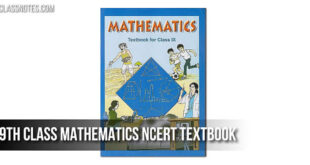Question: Write a short note on National Human Rights Commission.
Answer: The Rights Commission (NHRC) of India is an autonomous public body constituted on 12 October 1993 under the Protection of Human Rights Ordinance of 28 September 1993. It was given a statutory basis by the Protection of Human Rights Act, 1993 (TPHRA). The NHRC is the National Human Rights Commission of India, responsible for the protection and promotion of human rights, defined by the Act as “rights relating to life, liberty, equality and dignity of the individual guaranteed by the Constitution or embodied in the International Covenants”.
“Human Rights” means the rights relating to life, liberty, equality and dignity of the individual guaranteed by the constitution or embodied in the International covenants and enforceable by courts in India. “Commission” means the National Human Rights Commission constituted under section of All human beings are born free and equal in dignity and rights known as Human rights, as commonly understood, are the rights that every human being is entitled to enjoy freely irrespective of his religion, race, caste, sex and nationality, etc. (Jagdish Chand, 2007) In Declaration of Independence acknowledged the fundamental human rights. Human right means different thing to different people. Human Rights are not static, but are rather dynamic in nature. New rights are recognized and enforced from time to time. Only persons fully conversant with the latest development about the expanding horizons of Human Rights can promote their awareness better other.
Question: Enlist the new rights added in the South African constitution.
Answer:
- was for many South Africans an event to celebrate. The long lines of patient voters waiting to exercise their franchise were an inspiring example of democracy in action, all the more miraculous because of the threats of violence which had been so widespread until just a few days before the election. See infra notes 19-20 and accompanying text. Unfortunately, the results in one province of South Africa, KwaZulu / Natal, were tainted by massive fraud.
- The Pan Africanist Congress, long notorious for its “one settler, one bullet” slogan, placed sixth in the election, in which it won only 1.2% of the vote and just five seats in the National Assembly. Final Returns From South Africa, N.Y. Times, May 7, 1994, at A 8. The five parties which fared better were the African National Congress (62.7% of the vote and 252 seats), the National Party (20.4% of the vote and 82 seats), the Inkatha Freedom Party (10.5% of the vote and 43 seats), the Freedom Front (2.2% of the vote and 9 seats), and the Democratic Party (1.7% of the votes and 7 seats). Id.
- I follow the practice of many South Africans in using the term “black” to referto all South Africans of African, mixed-race (“Colored,” in South African parlance), and Indian descent.
- See Jonathan Steele, De Klerk Unlocks New Hope in Cape, Guardian (London), May 6, 1994, at 14; Jonathan Steele, ANC Yields Western Cape to Nationalists, Guardian (London), May 4, 1994, at 11. At least some Colored South Africans are angry enough with the new South African government that they rioted on September 15, 1994. See Bill Keller, Mixed-Race South Africans Riot Over ‘Favoritism’ for Blacks, N.Y. Times, Sept. 16, 1994, at A9.
Question: ‘The Right to Freedom is actually a cluster of several rights’. Discuss.
Answer:
- Freedom to live in any part of India: All citizens are free to live in any part of India but State can put restrictions keeping in mind the welfare of local people.
- Freedom to practice any profession or occupation: All citizens have the right to practice any profession or to carry on any occupation, trade or business.
- Right to Free Movement: Every citizen of India has been granted freedom to move throughout the Indian territory.
- Freedom to Assemble Peacefully: Indian citizens have been given the right to assemble without arms.
- Freedom of Speech and Expression: Democracy is a government by citizens. Freedom of speech and expression works as a barometer of public opinion.
- Right to Form Associations or Unions: The Constitution guarantees the right to form associations and unions to every citizen of India.
 Class Notes NCERT Solutions for CBSE Students
Class Notes NCERT Solutions for CBSE Students



